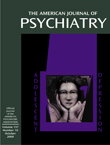High Doses of Levothyroxine for Refractory Rapid Cycling
Ms. A was a 36-year-old married woman who was disabled by bipolar disorder. A rapid-cycling pattern began in her teens and included hypomanias and depressions characterized by low-energy auditory hallucinations and suicidality. The rapid cycling was unrelated to the effects of antidepressant medications. After her initial hospitalization in 1991 following a suicide attempt, she required multiple hospitalizations despite treatment with fluoxetine, lithium, various antipsychotics, valproic acid, and carbamazepine. There was no history of primary thyroid disease, although Ms. A was taking liothyronine when she was referred to me in 1994.Her rapid cycling, which occurred every few days to every few weeks, continued despite a treatment regimen of 200 mg/day of clozapine, 1000 mg b.i.d. of valproic acid in therapeutic doses, and 0.15 mg/day of levothyroxine. The results of tests of her thyroid function were normal.After Ms. A’s levothyroxine dose was increased to 0.25 mg/day in 1995 in an effort to treat her rapid cycling, she had a marked decrease in the frequency and severity of her cyclic episodes. She was proud that she “set her record” for staying out of the hospital. Olanzapine and verapamil therapy were tried, but there was little effect. She was maintained in a mildly hyperthyroid state; she had an increased resting heart rate of 120 bpm and a mild tremor. In 1998 Ms. A had a slightly elevated free thyroxine index of 3.9 ng/dl and a decreased thyroid-stimulating hormone (TSH) level of 0.02 mU/ml.In March 1999 her internist insisted that her levothyroxine dose be decreased to 0.1 mg/day because of concern that her hyperthyroid condition was interfering with management of her newly diagnosed non-insulin-dependent diabetes mellitus and placing her at risk for osteoporosis. Within several weeks Ms. A developed severe psychotic depression and suicidality, requiring her first hospitalization in 4 years. Her TSH level was elevated, at 10.05 mU/ml, and her free thyroxine index was normal at 2.7 ng/dl. She cycled between depression and hypomania every few days in the hospital. With the approval of a consulting endocrinologist and the agreement of her internist, her dose of levothyroxine was again increased to 0.25 mg/day. Ms. A began to improve within a week and was discharged from the hospital after 14 days.For the last 7 months she has remained in a nearly euthymic state, with perhaps mild euphoria and much improved functioning, except for a brief period of recurrent cycling that remitted relatively quickly after we increased her levothyroxine dose to 0.3 mg/day. Ms. A continues to be mildly hyperthyroidal; she has a high-normal free thyroxine level of 1.5 ng/dl and a decreased TSH level of less than 0.1 mU/ml.
References
Information & Authors
Information
Published In
History
Authors
Metrics & Citations
Metrics
Citations
Export Citations
If you have the appropriate software installed, you can download article citation data to the citation manager of your choice. Simply select your manager software from the list below and click Download.
For more information or tips please see 'Downloading to a citation manager' in the Help menu.
View Options
View options
PDF/EPUB
View PDF/EPUBGet Access
Login options
Already a subscriber? Access your subscription through your login credentials or your institution for full access to this article.
Personal login Institutional Login Open Athens loginNot a subscriber?
PsychiatryOnline subscription options offer access to the DSM-5-TR® library, books, journals, CME, and patient resources. This all-in-one virtual library provides psychiatrists and mental health professionals with key resources for diagnosis, treatment, research, and professional development.
Need more help? PsychiatryOnline Customer Service may be reached by emailing [email protected] or by calling 800-368-5777 (in the U.S.) or 703-907-7322 (outside the U.S.).

